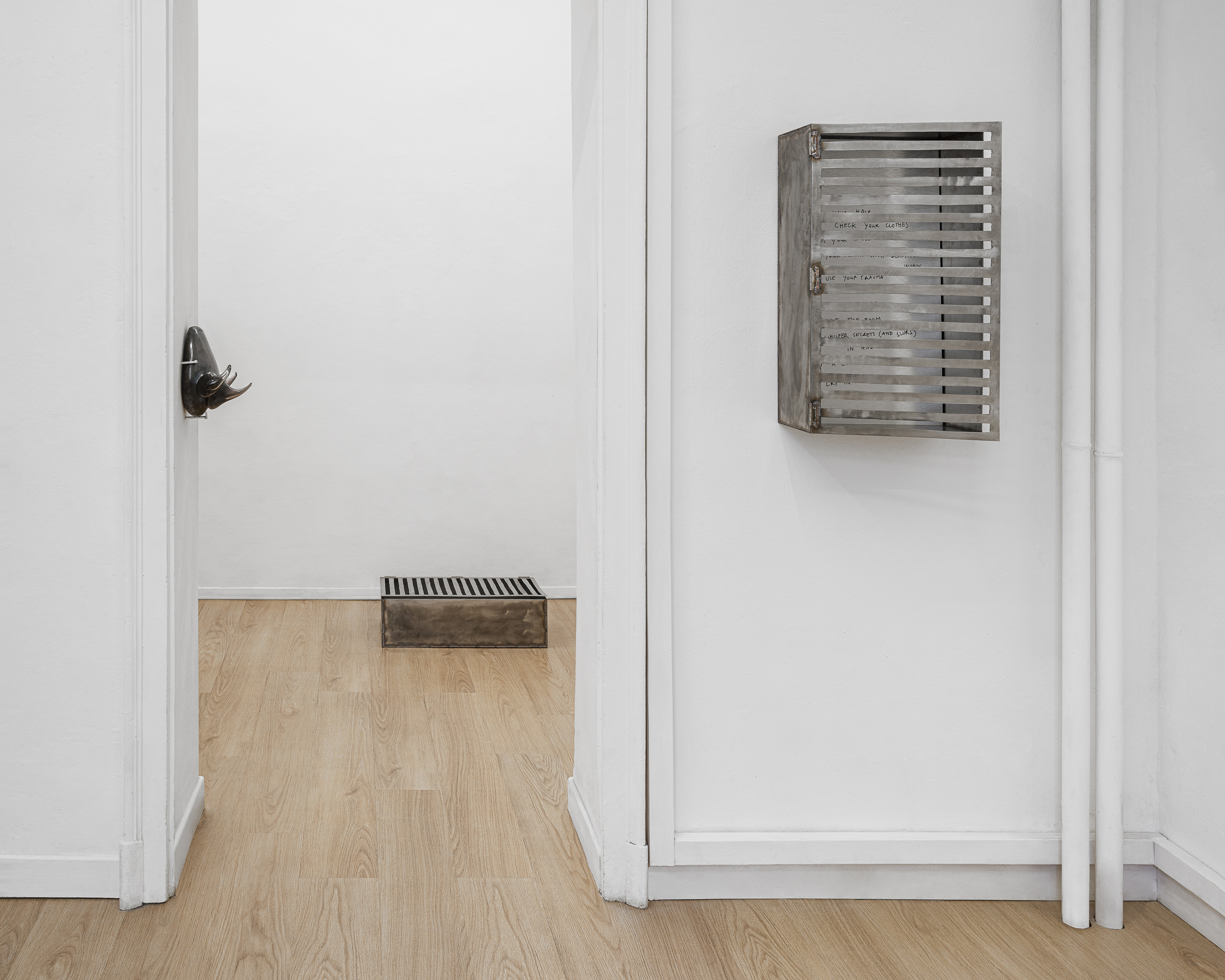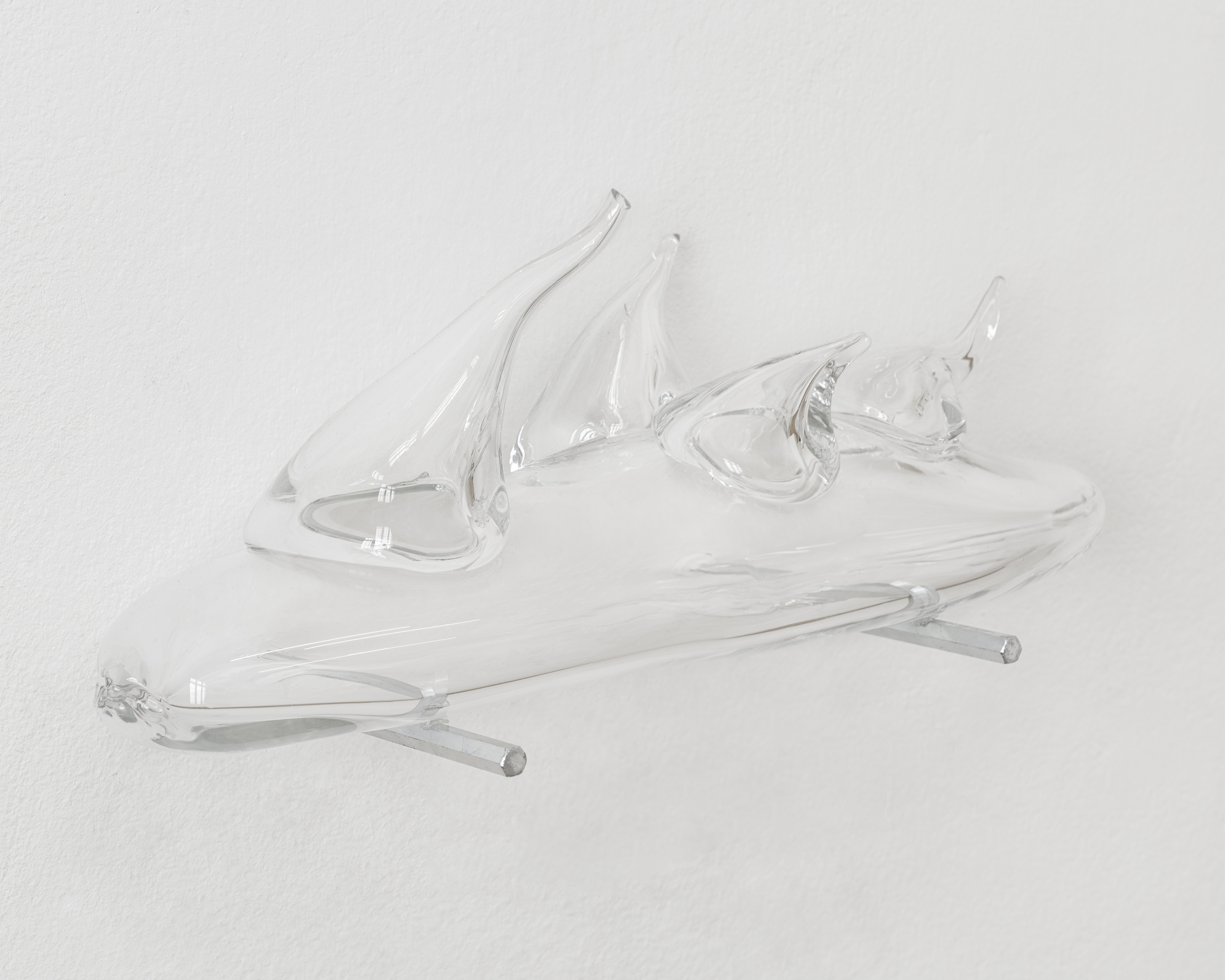








In his newly-commissioned body of work, a multi-sensory installation encompassing text, sound, and sculpture, Tarek Lakhrissi investigates means of entry, re-imagining constraining spaces by conjuring the metaphysical space of ‘hell’. Drawing from his background in literature, Lakhrissi delves into a revised version of Dante’s Inferno, considering Monique Wittig’s lesbian re-writing of the same. In Wittig’s experimental narration, ‘l’enfer’ is a place with rigid conditions, both social and climatic. But unlike Dante’s story, hell is often more common-looking than it seems: it’s accessed via a bar or a pool club, and it’s a place or a situation where Wittig is faced with difficult decisions that put into question her choices in a normative world. Lakhrissi’s work embraces the queer tools embedded in Wittig’s quest, making space for transformative narratives. If ‘hell’ is a place where undesirables are relegated, then Lakhrissi makes it hospitable for all those who are ‘other’. Together with composer Victor Da Silva, he combines sonic traces partly inspired by the Cloud Rap music of TRIPLEGO into an atmospheric sound piece that suspends time and creates a space in between a club and an eerie otherwordly dimension. For Lakhrissi, grates – a recurring visual element found in the streets of Milan – become portals and access points. A poem is embedded in one of the metal sculptures, inviting the reader to find a garden, a space to be with one’s feelings and personal struggles. Inside another grate are little devil creatures – hybrid beings that are both dangerous and faithful guides. Small fires, with their transparency and aqua-coloured iridescence, seem more playful than harmful. The materiality of glass, metal, words and sounds opens an emotional space to re-engage with physicality. By carefully crafting objects and traditions, Lakhrissi creates a place for otherness, a suspension of ‘good’ and ‘evil’: an intimate threshold for sharing and community. (Giulia Civardi)